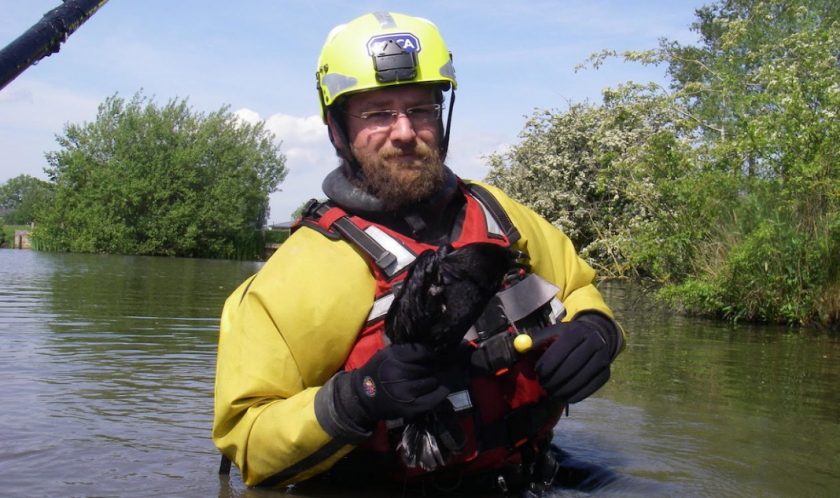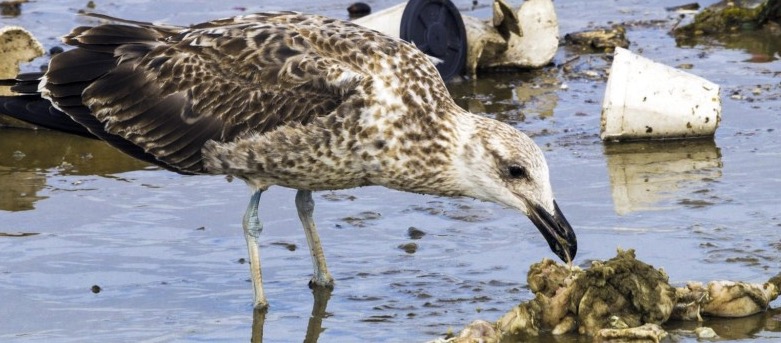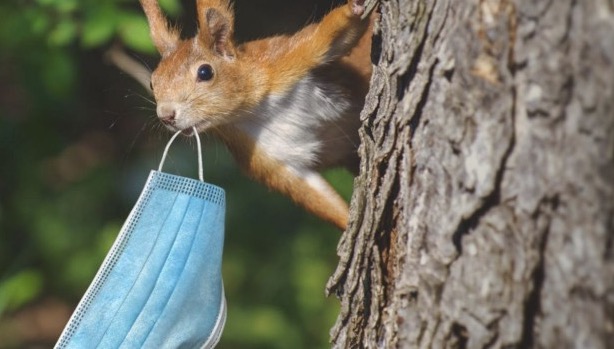Wildlife injured and killed by litter as RSPCA receive hundreds of reports in Wales

A “worrying” amount of calls have been made to the RSPCA in Wales about animals affected by litter over the past two years.
Despite people being in lockdown during significant parts of 2020 and 2021, the animal charity received 305 litter related animal welfare reports in Wales.
In 2021 there were 157 reports – an increase on the 148 reports made to the RSPCA in 2020. Cardiff, in both years, had the highest number of calls (22) while 20 calls each came from Conwy and The Vale of Glamorgan in 2021. (further stats below)
In total the RSPCA took 7,441 calls about animals affected by litter during 2020 and 2021 from across England and Wales.
Some of these incidents in Wales included:
-
A crow was rescued from fishing litter in Buckley. (pictured above)
-
A swan in Mumbles was found with a fishing hook embedded into her skin.
-
A duck died after fishing litter wire became trapped tightly around the bird’s leg at Hendre Lake in Cardiff.
-
An RSPCA officer raced to the aid of a goose who was spotted with a plastic zip seal stuck to her beak. The animal welfare charity was alerted after a member of the public spotted the goose at Singleton Park Boating Lake in the Sketty area of Swansea. Video here
The charity has released the figures as the RSPCA is urging people to do their bit and join the Great British Spring Clean’s ‘Big Bag Challenge’ which runs until April 10.
For this year’s Great British Spring Clean the animal welfare charity is urging people to take part in Keep Britain Tidy’s Big Bag Challenge and help protect animals by picking up any litter they see lying around as well as ensuring they take their litter home with them or disposing of it properly and responsibly.

RSPCA Scientific Officer Evie Button said: “Our staff deal with a worrying amount of incidents every year where animals have been impacted by litter – and they’re the ones that we know of. I’m sure for every animal we’re able to help there are many that go unseen, unreported and may even lose their lives.
“Litter is one of the biggest hazards our wildlife faces today. It’s a problem on all of our doorsteps – from city centres to the countryside and beaches – so all of us can do something to help. Spring is an ideal time to go on a litter-pick because it’s before the breeding season when young animals such as fox cubs start getting into trouble, and litter will be more visible in hedges before the vegetation really starts growing. That’s why we’re calling on the public to get involved in the Great British Spring Clean to help remove litter that may endanger animals.”
As well as everyday rubbish, the RSPCA also sees many animals arriving into its care with terrible injuries caused by angling litter such as discarded fishing line and hooks to plastic netting.
Nearly 40 per cent (2,882) of all litter-related calls to the RSPCA across England and Wales last year were about animals that had specifically become caught in fishing litter, from a seal who died after old fishing line became tangled so tightly around his mouth he could barely breath to dozens of swans who swallowed or were pierced by old fishing hooks or became entangled in fishing line.

Evie continued: “Animals who get their heads or necks stuck in litter can suffer severe injuries as they struggle to break free and can even suffocate, while others will slowly grow weaker and weaker as they try to hunt or find food or water.
“Others will get fishing line or netting cutting deep into their skin, affecting circulation and with wounds becoming seriously infected. These hazards can very quickly become a matter of life or death for these animals and action is urgently needed to tackle this problem head-on. It’s up to every one of us to do our bit in the war against litter.”
Evie added: “The majority of anglers do dispose of their litter properly and it is frustrating that those who don’t possibly don’t realise how dangerous it is to animals. Discarded line in particular is a terrible hazard for wildlife, particularly as it can be almost invisible.
“We strongly urge those who enjoy fishing to be extra cautious to make sure nothing is left behind. Most anglers are very responsible when disposing of their litter, but it only takes one piece of snagged line to be left in a tree or dropped near the water to endanger the life of an animal. We ask that all those who enjoy fishing to follow the Angling Trust Anglers Against Litter campaign and make use of the recycling scheme to dispose of their waste tackle.
“If members of the public see discarded litter we would encourage them to pick it up safely and put it in the bin, remembering to wash their hands after. Their action could save an animal’s life.”
To help the RSPCA continue rescuing, rehabilitating and rehoming animals in desperate need of care please visit our website or call our donation line on 0300 123 8181.
Spotted something? Got a story? Email: [email protected]
Latest News
